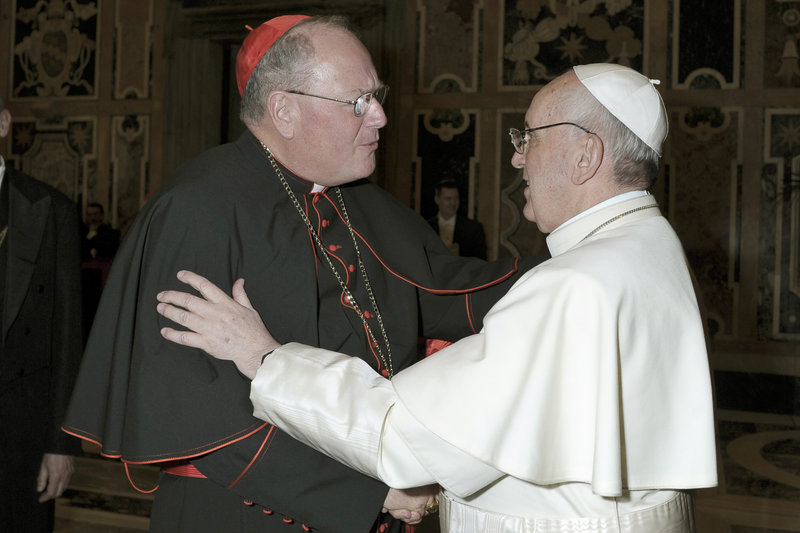NEW YORK – In recent years, many American bishops have drawn a harder line with parishioners on what could be considered truly Roman Catholic, adopting a more aggressive style of correction and telling abortion rights supporters to stay away from the sacrament of Communion.
Liberal-minded Catholics derided the approach as tone-deaf. Church leaders said they had no choice given what was happening around them: growing secularism, increasing acceptance of gay marriage, and a broader culture they considered more and more hostile to Christianity. They felt they were following the lead of the pontiffs who elevated them.
But in blunt terms, in an interview published Thursday in 16 Jesuit journals worldwide, the new pope, Francis called the church’s focus on abortion, marriage and contraception narrow and said it was driving people away. Now, the U.S. bishops face a challenge to rethink a strategy many considered essential for preserving the faith.
“I don’t see how the pope’s remarks can be interpreted in any other way than arguing that the church’s rhetoric on the so-called culture war issues needs to be toned down,” said John Green, a religion specialist at the University of Akron’s Bliss Institute of Applied Politics. “I think his language calls for less stridency on these issues.”
The leadership of the American church is composed of men who were appointed by Popes John Paul II or Benedict XVI, who made a priority of defending doctrinal orthodoxy. Over the last decade or so, the bishops have been working to reassert their moral authority, in public life and over the less obedient within their flock.
The U.S. Conference of Catholic Bishops warned Catholics that voting for abortion-rights supporters could endanger their souls. Church leaders in Minnesota, Maine and elsewhere took prominent roles in opposing legal recognition for same-sex marriage in their states. Bishops censured some theologians and prompted a Vatican-directed takeover of the largest association for American nuns by bringing complaints to Rome that the sisters strayed from church teaching and paid too little attention to abortion.
Terrence Tilley, a theologian at Fordham University, said Francis wasn’t silencing discussion of abortion or gay marriage, but indicating those issues should be less central, for the sake of evangelizing. But he noted that bishops have independence to decide how they should handle local political issues.
“Although Francis is sending a clear signal that he’s not a culture warrior, that doesn’t mean the bishops will follow in lockstep,” Tilley said.
Send questions/comments to the editors.



Success. Please wait for the page to reload. If the page does not reload within 5 seconds, please refresh the page.
Enter your email and password to access comments.
Hi, to comment on stories you must . This profile is in addition to your subscription and website login.
Already have a commenting profile? .
Invalid username/password.
Please check your email to confirm and complete your registration.
Only subscribers are eligible to post comments. Please subscribe or login first for digital access. Here’s why.
Use the form below to reset your password. When you've submitted your account email, we will send an email with a reset code.